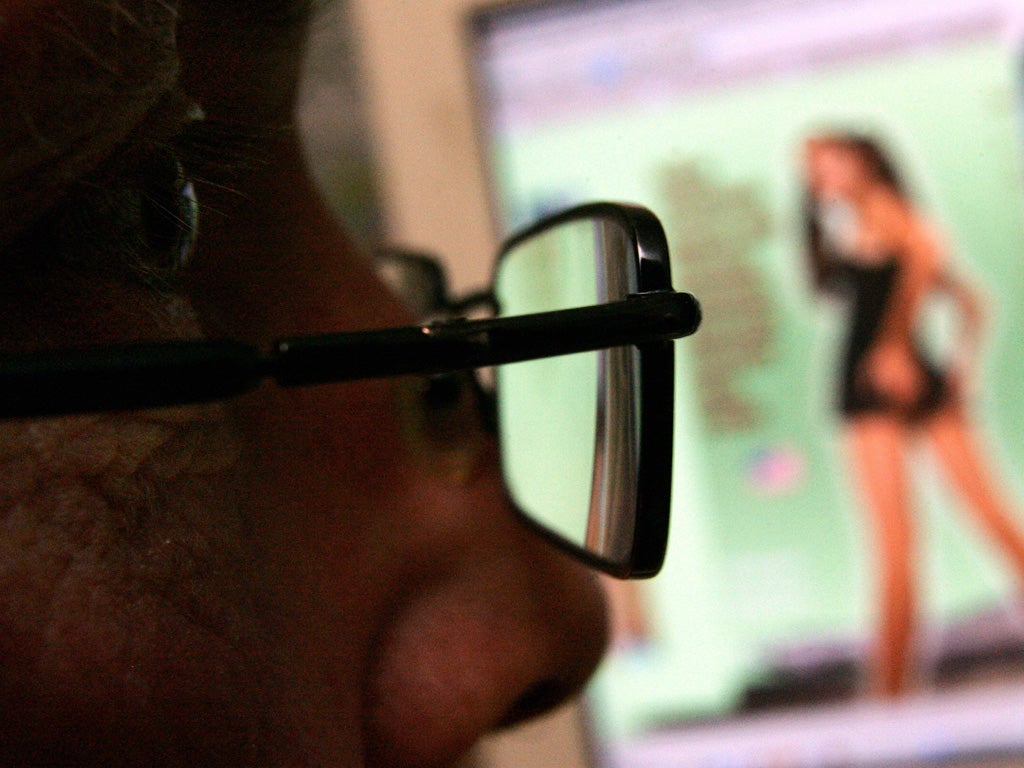Porn Studies journal publishes its first issue
The academic journal has been criticised by anti-porn campaigners

It’s one of the most controversial cultural conversations in today’s society, with campaigners on both sides of the fence vehemently arguing their stance.
And on Friday, a new journal launched itself into the centre of the debate about pornography, with the release of its debut issue.
Porn Studies, published by Routledge, is a quarterly academic journal described as "the first dedicated, international, peer-reviewed journal to critically explore those cultural products and services designated as pornographic".
First announced in Summer 2013, the journal has attracted widespread media attention during a digitalised age of online porn, sexting and scantily clad women littered across public spaces.
In the introduction to the first issue, its editors-in-chief - Feona Attwood, a professor of cultural studies at Middlesex University, and Clarissa Smith, a reader in sexual cultures at the University of Sunderland - write: “Recent years have seen a resurgence of public discussions (and scares) about a series of pornography-related topics, perhaps most notably the expansions of pornography across the internet, its putative links to rape and sexual violence, and erotic life-styling or the oft-cited “sexualisation of culture.”
They write that the journal is a “scholarly” response to these discussions and a “labour of love”.
Papers published in the inaugural issue include "Deep tags: toward a quantitative analysis of online pornography", "Internationalizing porn studies" and "Porn and sex education, porn as sex education".
But the journal has been criticised for normalising and glamorising porn culture.
Gail Dines, an anti-pornography activist and professor of sociology and Women's Studies at Wheelock College, Boston, told The Observer in June that while it was vital that pornography was studied and research published, she had grave concerns about the editorial direction of the journal.
"These editors come from a pro-porn background where they deny the tons and tons of research that has been done into the negative effects of porn," she said.
"They are akin to climate-change deniers. They're taking a bit of junk science and leaping to all sorts of unfounded conclusions."
Earlier this month, Ms Dines co-hosted the Stop Porn Culture conference in London, which focused on how porn culture shapes people’s ideas about sexuality, relationships, masculinity, femininity and intimacy.
Writing for The Independent, Ms Dines said that today’s online pornography sexualises the degradation of women’s bodies and leads to desensitisation.
“Gone are the days of women posing seductively as they coyly smile into the camera. Instead, we enter a world of sexual cruelty and abuse where anything that can be done to a woman to debase and dehumanise her, is sexualised and eroticised,” she wrote.
Facts and figure about online pornography vary widely, with some estimates saying that more than a third of the internet is made up of pornographic material. Last year, The Huffington Post reported that porn sites get more visitors each month than Netflix, Amazon and Twitter combined.
But not everyone shares Ms Dine’s views. Also in attendance at this month’s Stop Porn Culture conference was a group of pro-porn campaigners, including the ex-porn star and pro-sex feminist campaigner Renee Richards.
Under the banner of the Sex and Censorship organisation, the group staged a protest called Don’t Censor Me!
Writing for The Independent, the organisation’s founder, Jerry Barnett, said that the protest was intended to “defend sexual freedom in Britain against a new wave of morality campaigners”.
“The speakers were unanimous: the lives of women who sell sex will not be improved by censoring pornography,” he wrote.
For the editors of Porn Studies, it is this very divide in opinion which has prompted their publication of the journal, which they hope can become “a space in which debate and argument can flourish without rehearsing the same old arguments of the porn debates”.
The journal is freely available online for a limited period, meaning that anyone can read all of the papers included in the inaugural issue.
And so the conversation rumbles on.
Join our commenting forum
Join thought-provoking conversations, follow other Independent readers and see their replies
Comments